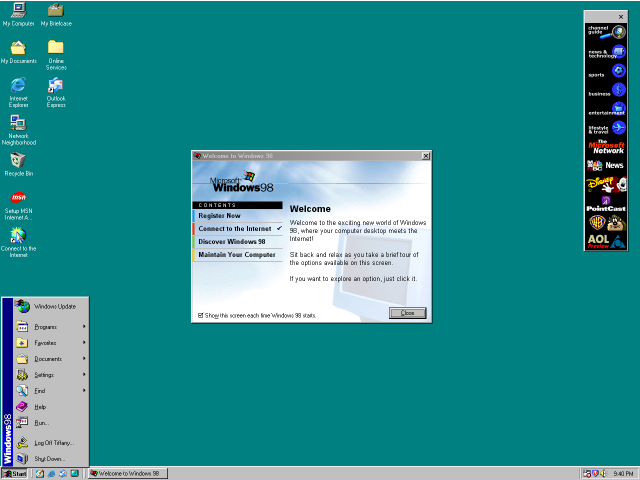Aspects of this paper discussed a unanimous need for graduates of higher learning systems to be able to use computers in order to achieve their maximum potential. Once new graduates were hired employers were discovering that many of the graduates were lacking basic computer literacy (word processing, spreadsheet software,etc) a decision was made to re-enforce traditional teachings with new technology. For example I remember in the late 90s when we were still running windows 98 on our machines in school, and many of the teachers were unable to perform basic tasks such as taking attendance , and properly entering grades into spreadsheet programs such as Microsoft Excel. Today (2012) the inability to perform ones job using computers could potentially be grounds for dismissal. In addition during my 2nd year at Tech I was apart of the last group of students who were able to take a class on basic computer literacy. Even though I barley escaped the class with a B due to effort and being a "know it all", it didn't take me long to realize that this obvious body of knowledge, my computer literacy for the lack of a better word was not to be taken for granted. There were lots of students in my class who struggled with basic tasks from finding files to calculating values in Excel. By the end of the course I had come to a single determination that this entire class was focused on using the Microsoft Office Suite, and in turn was heavily Windows based. I would have to say that this grooming process definitely helped to illuminate what is really going on in the institutional world and how Literacy and Computer Literacy practices are applied to the masses in order to generate new customer bases.
Overall this article helps to identify criteria for defining technology literate individuals within specific communities and illustrates how to design a formulated approach to supplying computer systems and technologies to varying communities in order to achieve the best widespread technological saturation.Which can be done by identifying what people do when accessing public computing sites such as libraries, schools, public WiFi zones, etc. and how these locations can be better outfitted to better facilitate productivity and learning by placing more emphasis on mathematics understandings and computer programming. In summation societies can become more technologically literate if technology is forced upon them in an understandable manner.
So basically because I did a ton of research on computer literacy, learning and HCI when I was taking classes for my psychology minor, I didn't learn anything new.
I have included screenshots of Windows 98 below for your amusement.


No comments:
Post a Comment